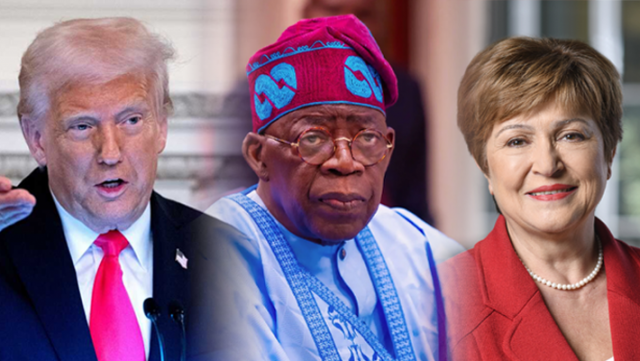The managing director of the International Monetary Fund, Kristalina Georgieva, has voiced her apprehensions regarding new U.S. tariffs, deeming them a significant threat to the global economy amid persistent economic sluggishness.
In a statement made following Tuesday’s announcement of these tariff measures, Georgieva noted, “We are still evaluating the macroeconomic impacts of the announced tariff measures.” She emphasized that these tariffs pose a “substantial risk to the global outlook” during a time of slow economic growth.
The IMF chief highlighted the importance of avoiding actions that could further harm the world economy and urged the United States and its trading partners to engage in constructive discussions. “We appeal to the U.S. and its trading partners to collaborate to resolve trade tensions and lessen uncertainty,” she remarked.
She pointed out that uncertainty in trade policies could further dampen investment and growth. Georgieva’s comments come as worries increase over the ramifications of protectionist policies. Tariffs often provoke retaliatory actions, disrupt global supply chains, and raise expenses for both businesses and consumers.
On Wednesday, the U.S. declared a 14 percent tariff on goods imported from Nigeria. This action, part of President Donald Trump’s wider protectionist trade strategy, caused volatility in financial markets, with Wall Street, European markets, and Asian indices all experiencing turbulence.
President Trump’s choice to enforce new tariffs on Nigeria follows months of trade disputes, with the U.S. president contending that Nigeria has gained unfair advantages from U.S. trade policies. The precise tariffs, which took immediate effect, impose duties on essential Nigerian exports such as agricultural goods and manufactured items.
While the details of the U.S. tariffs are still being scrutinized, similar initiatives in the past have heightened tensions with key trading partners. Georgieva confirmed that the IMF will deliver a comprehensive analysis of the tariffs’ effects in its World Economic Outlook, which will be published during the upcoming IMF/World Bank Spring Meetings.
Scheduled for later this month, these gatherings will convene global financial leaders. Numerous experts argue that increased trade barriers could hinder economic advancement, warning that disruptions to supply chains and rising costs could further strain already vulnerable economies.
This situation arises amid broader worries regarding global economic stability. With high inflation affecting several major economies and tightening monetary policies, additional trade conflicts could worsen existing challenges.
U.S. officials have defended their tariff strategies, claiming they are essential for safeguarding domestic industries. However, detractors caution that such actions frequently result in unforeseen economic repercussions.
The IMF has consistently endorsed open trade and multilateral collaboration, believing that dismantling trade barriers and resolving disputes through negotiation enhances global economic stability and growth.
Numerous leaders are advocating for caution as the global economy continues to recover from various shocks.




















